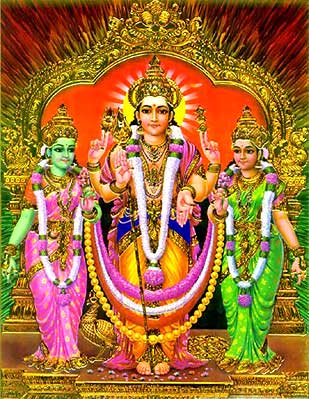 “Vedic”, is derived from the Sanskrit word “Veda” which means knowledge. The Vedas are the oldest scriptures known to exist, being well over 5,000 years old. The vast ocean of Vedic knowledge encompasses every area of human experience including both material and spiritual knowledge. Studies on a wide range of disciplines such as medicine, politics, agriculture, engineering, sociology, philosophy, natural sciences and astrology are found in the Sanskrit Vedic writings. Vedic Astrology is without doubt the oldest of the systems of knowledge received and devised by ancient Rishis and Seers in India through their power of intuition.. Vedic Astrology is not only a philosophy which deals with the physical nature of the universe but also one of the most important of the inner or spiritual sciences which deals with the mind and soul.
“Vedic”, is derived from the Sanskrit word “Veda” which means knowledge. The Vedas are the oldest scriptures known to exist, being well over 5,000 years old. The vast ocean of Vedic knowledge encompasses every area of human experience including both material and spiritual knowledge. Studies on a wide range of disciplines such as medicine, politics, agriculture, engineering, sociology, philosophy, natural sciences and astrology are found in the Sanskrit Vedic writings. Vedic Astrology is without doubt the oldest of the systems of knowledge received and devised by ancient Rishis and Seers in India through their power of intuition.. Vedic Astrology is not only a philosophy which deals with the physical nature of the universe but also one of the most important of the inner or spiritual sciences which deals with the mind and soul.
Vedic astrology assumes the law of “Karma”, which states that all living beings operate and work within certain parameters governed by actions performed in past lives. Thus it is generally regarded as predictive in nature; it can show how and when the results of such karmic actions will come to fruition in the present life. It also puts emphasis on the spiritual development of the individual and how one's quality of life can be improved through good living and spiritual cleanliness.
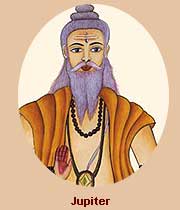 Vedic Astrology or “Jyotish” is an astrology originated and practised in India. The word Jyotish literally means the ‘light of God’. This implicitly refers to the connection among all the lives and the rest of the universe. A basic tenant of all astrological studies is that events in the cosmos influence, in gross and subtle ways, events on earth. To be clear, astrology claims to predict events based upon the positions of various celestial objects at one’s time and place of birth.
Vedic Astrology or “Jyotish” is an astrology originated and practised in India. The word Jyotish literally means the ‘light of God’. This implicitly refers to the connection among all the lives and the rest of the universe. A basic tenant of all astrological studies is that events in the cosmos influence, in gross and subtle ways, events on earth. To be clear, astrology claims to predict events based upon the positions of various celestial objects at one’s time and place of birth.
This is usually the point at which most rational people walk away labelling astrology as non-scientific. There are two main reasons for this rejection. Firstly, we have limited evidence to say that stars or planets – have influenced our lives. Secondly, there is no known physical principles or laws that explain such a connection.
Why then is astrology, in any form, still around, especially in traditional and scientifically oriented societies? Part of the reason is historical. There is a very old tradition of analysing / interpreting the positions of heavenly bodies to predict world events. For example, Johannes Kepler used planetary positions to predict weather. Another reason for the persistence of astrology is its apparent continued success, at least in the minds of some people. Many who "have their charts done" by a “qualified” Vedic astrologer are very impressed with the level of detail, the astrological readings were able to discern about them.
Differences between Vedic and Western Astrology
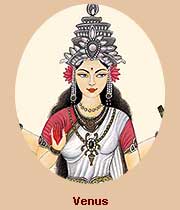 Both types of astrological studies use charts to describe the influence the planetary positions can have on one’s well being and materialistic development. The first point you notice when you compare Western and Vedic charts, is that they look different: while the Vedic chart is square, the Western chart is round. If you are familiar with Western astrology, upon careful examination, the Vedic chart will appear to have planets aligned with different constellations (signs). For example, suppose, according to Western astrology, your Sun sign is in Capricorn. In the Vedic system, it could be in Sagittarius. Your rising sign and the other planets might also be in unfamiliar signs. However, this does not mean that Vedic astrology is incorrect. It simply calculates a horoscope differently.
Both types of astrological studies use charts to describe the influence the planetary positions can have on one’s well being and materialistic development. The first point you notice when you compare Western and Vedic charts, is that they look different: while the Vedic chart is square, the Western chart is round. If you are familiar with Western astrology, upon careful examination, the Vedic chart will appear to have planets aligned with different constellations (signs). For example, suppose, according to Western astrology, your Sun sign is in Capricorn. In the Vedic system, it could be in Sagittarius. Your rising sign and the other planets might also be in unfamiliar signs. However, this does not mean that Vedic astrology is incorrect. It simply calculates a horoscope differently.
Interpretations in Vedic astrology are often more accurate due to the fact that the birth chart is prepared according to the position of the Moon which moves from one Zodiac sign to the other within 2 ½ days, unlike the Sun used in Western Astrology which takes almost 30 days. Additionally, there are 27 Constallations and 16 Harmonic charts which will increase the preciseness of the reading. Vedic Astrology is a highly spiritual subject explaning the results of our Karmic influence. Both types emphasise the psychological nature of the individual, however, Vedic Astrology has a very reliable method known as “Dasha” in predicting future cycles and events accurately. Vedic astrology is a predictive tool that focuses on when certain events are likely to occur.
 Vedic astrology gives a better view of the outcomes of karmic influences and also how and when such tendencies are likely to manifest for that person. The times of occurrence of significant life events are shown through a detailed system of planetary time cycles, called “Dashas”. There is no corresponding method in Western astrology.
Vedic astrology gives a better view of the outcomes of karmic influences and also how and when such tendencies are likely to manifest for that person. The times of occurrence of significant life events are shown through a detailed system of planetary time cycles, called “Dashas”. There is no corresponding method in Western astrology.
Vedic Astrology places strong emphasis on harmonic charts – could go up to 16 additional charts or “Vargas”. Vargas represent different ways of dividing up the zodiac (an imaginary heavenly belt of star signs) to focus in on specific aspects of a chart (such as career path, wealth, relationship issues or moral character etc.). The Western system does not use Vargas. Finally, the outer planets (Uranus, Neptune, and Pluto) are not part of Jyotish, whereas they are very much a part of the Western system. The Western system also uses asteroids and stars, and these have no counterpart in traditional Jyotish.
The major differences between Vedic Astrology and modern Western Astrology are threefold:
First of all, Vedic Astrology is technically termed a "sidereal system" whereas Western Astrology is "tropical." What this essentially means is that up in the sky there are stars which make up the various constellations of the Zodiac such as Virgo, Aquarius, etc. Vedic Astrology is based upon the actual stellar constellations (sidereal), whereas Western Astrology is based on a imaginare zodiac that slowly moves backwards in space as a function of time ("tropic" in Latin means "to turn").
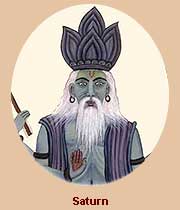 Secondly, as already mentioned, Vedic Astrology is based on a very old, unbroken tradition since time immemorial whereas Western Astrology has had a very checkered history. Astrology virtually disappeared in the West during the Dark Ages (circa 500-1000AD). In fact, it totally disappeared from the European continent until the late 19th century. It had been kept barely alive in England during that time. Western Astrology as we know it today has existed for about 130 years. The point is that the Vedic tradition is very strong and vibrant, with the heritage of many millennia of accumulated knowledge, whereas Western Astrology does not have the advantage of an unbroken tradition.
Secondly, as already mentioned, Vedic Astrology is based on a very old, unbroken tradition since time immemorial whereas Western Astrology has had a very checkered history. Astrology virtually disappeared in the West during the Dark Ages (circa 500-1000AD). In fact, it totally disappeared from the European continent until the late 19th century. It had been kept barely alive in England during that time. Western Astrology as we know it today has existed for about 130 years. The point is that the Vedic tradition is very strong and vibrant, with the heritage of many millennia of accumulated knowledge, whereas Western Astrology does not have the advantage of an unbroken tradition.
Thirdly, Vedic astrology, being an appendix to the Vedas, is thoroughly steeped in Vedic thought and philosophy. This means that the practitioner of the science must have earnestly assimilated the Vedic philosophy and lived the life of a Vedic Brahmana, with all its attendant spiritual practices. The Western Astrologer has (in comparison to the Vedic Astrologer) no philosophical training, nor does he know what it means to follow a spiritual discipline. The combined effect of genuine philosophical knowledge coupled with an authentic spiritual lifestyle cannot be overestimated when it comes to developing the divine vision and ability that is so necessary for enabling an astrologer to properly guide others.
Calculations
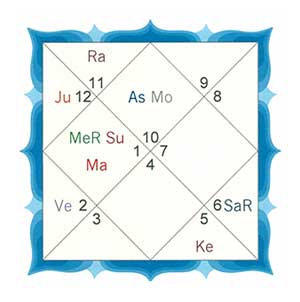 There is a precise sequence that needs to be followed during the preparation of birth charts or horoscopes. When these steps are performed as prescribed, the result is a birth chart that can form a useful basis for interpretation. The charts can assess a person’s basic character and can also serve to highlight some of the forces at play that can or will influence a person during different periods in life. Therefore, the first step towards making accurate readings of any individual is to cast his or her horoscope using the correct time, date and the place of birth of that person. If the time is unknown or not given in the birth certificate one can get the time from the archives of the hospital. Even if the exact time is not known, the astrologer can work out the correct birth time by analysing the positive and negative events that an individual has experienced (known as birth time rectification).
There is a precise sequence that needs to be followed during the preparation of birth charts or horoscopes. When these steps are performed as prescribed, the result is a birth chart that can form a useful basis for interpretation. The charts can assess a person’s basic character and can also serve to highlight some of the forces at play that can or will influence a person during different periods in life. Therefore, the first step towards making accurate readings of any individual is to cast his or her horoscope using the correct time, date and the place of birth of that person. If the time is unknown or not given in the birth certificate one can get the time from the archives of the hospital. Even if the exact time is not known, the astrologer can work out the correct birth time by analysing the positive and negative events that an individual has experienced (known as birth time rectification).
There is a unique system in Vedic astrology known as Prashna or Horary astrology. One needs not to possess birth data, the important factor here is the actual moment of making a query. Generally, it involves the erection of a horoscope chart for the moment of the query.
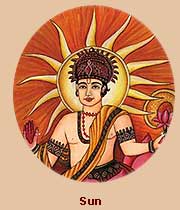 The process of casting a horoscope is purely based on complex and in depth mathematical calculations, which if done manually, will not only consume a considerable amount of time but will also be error prone. Nowadays, we can make use of the modern technological marvel - the computer - to do all these calculations and also to rectify the time of birth. However, the computer can not make any interpretations or predictions. Now, as we know that the process of casting one’s horoscope will be accurate using computers, the remaining part of making interpretations can only be done by an experienced astrologer with a good spiritual background combined with an analytical and research talent. One has to understand that there could be some billions of probabilities to identify, which could be million times harder than playing a game of Chess.
The process of casting a horoscope is purely based on complex and in depth mathematical calculations, which if done manually, will not only consume a considerable amount of time but will also be error prone. Nowadays, we can make use of the modern technological marvel - the computer - to do all these calculations and also to rectify the time of birth. However, the computer can not make any interpretations or predictions. Now, as we know that the process of casting one’s horoscope will be accurate using computers, the remaining part of making interpretations can only be done by an experienced astrologer with a good spiritual background combined with an analytical and research talent. One has to understand that there could be some billions of probabilities to identify, which could be million times harder than playing a game of Chess.
Readings
Vedic astrology embraces the law of cause and effect. For every action one should expect a consequence. This is called karma. The Vedic astrologers study the laws of karma as they apply to any particular horoscope. The positioning or the placement of seven major planets, namely, Sun, Moon, Mars, Mercury, Jupiter, Venus and Saturn play an important role in moulding one’s life. The Vedic astrologers also take careful notice of two shadowy planets (The Lunar Nodes), Rahu and Ketu. According to birth time, the rising sign is established and the planets take their proper placement within the horoscope or the birth Chart. The destiny of the living entity can now be ascertained with amazing accuracy. By employing a unique system of planetary periods and sub periods, by observing the movement of the planets through the houses of the horoscope and various Vargas (harmonic charts), the Vedic astrologer could predict the timing of events in anyone's life.
 Considering that there are nine planets, twelve signs, and twelve houses, one can easily imagine the extent of possible combinations and permutations of these, (and, this without taking into consideration the individual degrees and divisional charts.) The energies of the planets, signs, and houses interact with each other in countless ways. By studying the combinations, a well trained astrologer can know an amazing amount of information about the subject of a chart--a remarkable feat, considering that the original input data consisted of only the date, time, and place of birth.
Considering that there are nine planets, twelve signs, and twelve houses, one can easily imagine the extent of possible combinations and permutations of these, (and, this without taking into consideration the individual degrees and divisional charts.) The energies of the planets, signs, and houses interact with each other in countless ways. By studying the combinations, a well trained astrologer can know an amazing amount of information about the subject of a chart--a remarkable feat, considering that the original input data consisted of only the date, time, and place of birth.
Hence, Vedic astrology is rapidly being known as a very effective tool in giving clarity to resolving the dilemmas of life. It can help you to conquer obstacles, prepare you to grab golden opportunities regarding finances, career and help you in analysing marriage, relationships and family matters etc. I have been studying astrology for over 25 years. I personally have experienced that the Vedic system of planetary periods for timing the events in one's life, is unparalleled. It works very well when used properly and in conjunction with transits through the horoscope and significant Vargas (Harmonic charts).
After studying the horoscope of an individual, a skilled and experienced astrologer can discover the major patterns and planetary influence in a person’s life, principal character traits and make fairly accurate readings about future events. According to Hindu system of astrology, each planet rules for a certain length of time. It is during this time that the significations of the ruling planet, as well as the affairs of the house it occupies, will manifest as your experience. Each major period is divided into sub-periods, which are further divided into minor-periods. In this way living beings fulfil the destinies that are due to them. (For everything there is a season, and a time for every purpose under heaven.)
The Consultant Astrologer, Dr Theja will keep the identity of the client and the readings made confidential. The Vedic Astrologer is not a fortune teller, a psychic reader or a clairvoyant. Vedic Astrology is a divine subject. The astrologer approaches it with true reverence. His authentic horoscope readings are very unique and not a generalised computer generated version.
"The best forecasts are not those that come true,
but those that Warn, Teach and Prepare
to lead a happy and contented life”